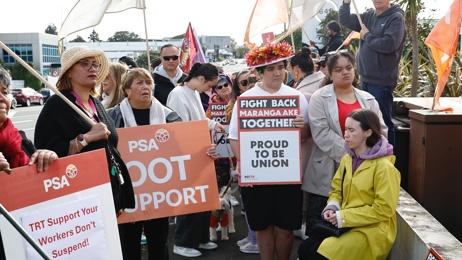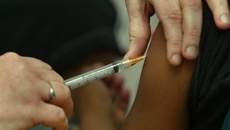
Te Whatu Ora has announced more than $7 million to fund free cervical services for higher-risk groups.
Those eligible include people who have never been screened before, those who haven’t been tested in the past five years, people at higher risk, Māori, Pasifika, and community service card holders.
Around 85 per cent of people who develop cervical cancer in Aotearoa have either never been screened or have been screened infrequently.
About 180 people are diagnosed with cervical cancer each year and about 60 people die from it each year.
Te Whatu Ora said free screening would be available from 12 September when the new HPV test is rolled out, which has been delayed.
The new test means people can choose to self-swab, get a health professional to collect a sample or have a smear test.
Te Whatu Ora National Public Health Service national director Dr Nick Chamberlain said the new screen test would be much easier to use and would identify more pre-cancers.
/cloudfront-ap-southeast-2.images.arcpublishing.com/nzme/RAOVY2NHLNBNPLRDA4TAGTXNM4.JPG)
“Providing free HPV cervical screening tests will play a critical role in helping more people to access the programme and detect cancer earlier.”
He urged those who were due or overdue for screening not to wait.
“The current cervical screening test (often called a smear test) is safe and effective in protecting against cervical cancer. If you are due for a test, I encourage you to contact your health provider now to book in.”
The rollout of the new HPV test was meant to happen on 26 July, which Chamberlain said had been pushed back to give the health system time to prepare for the free screening as well as further test the new IT system that would support the screening programme.
“The new IT system will make it easier for us to reach out to those who don’t regularly access screening to invite them to take part, offer support to access appointments like help with transport, as well as answer any queries they might have. It will also make it easier for people to know when they are due for their next test.
“The core part of the IT system has been built and the robust testing that we are undertaking at present will help to ensure all components are working and that data is safe, accurate and up to date.”
The delays to the test rollout are not expected to impact the delivery of the HPV screening programme, which is due to be finished by the end of March next year.
-RNZ
Take your Radio, Podcasts and Music with you









